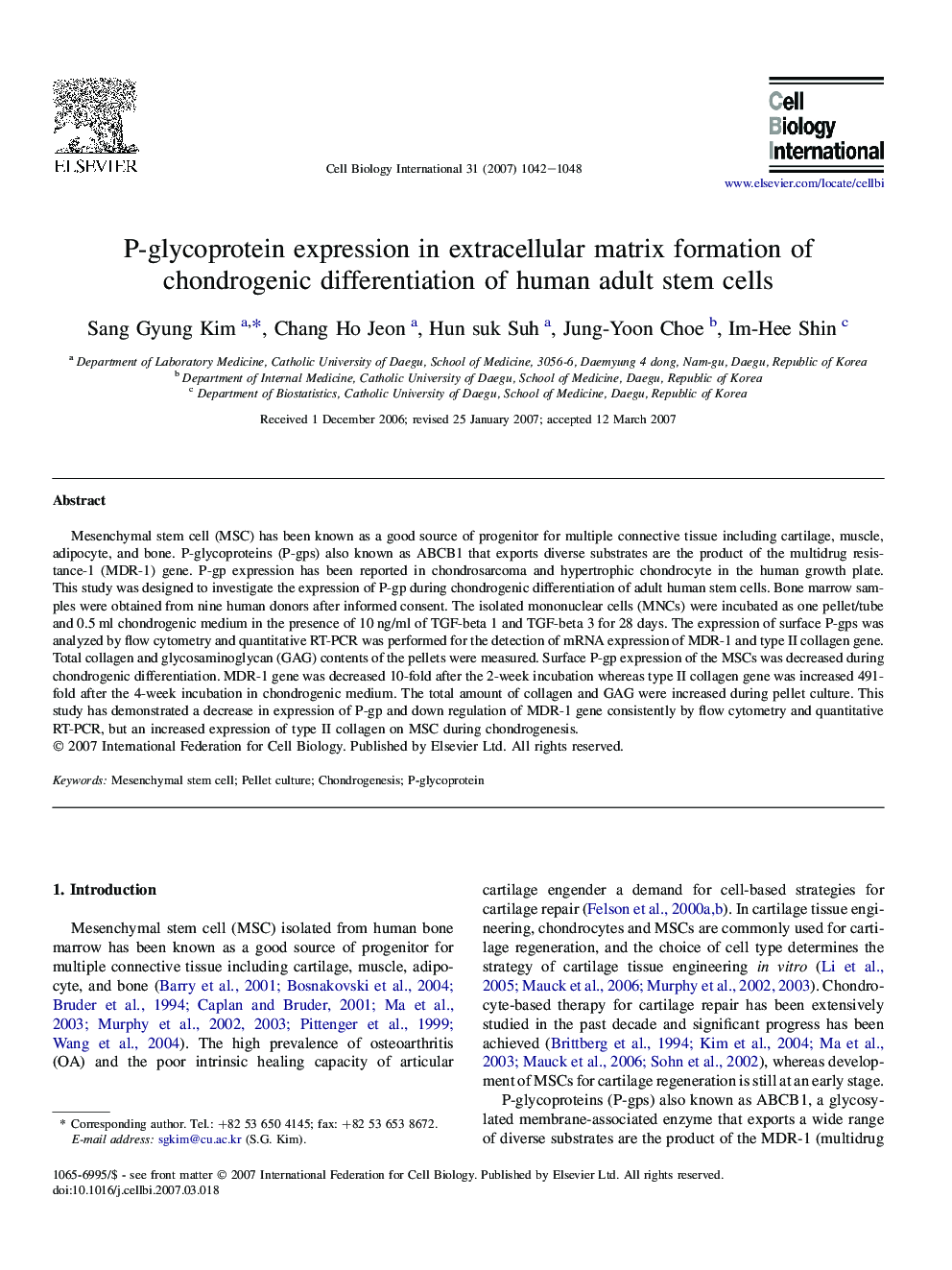| Article ID | Journal | Published Year | Pages | File Type |
|---|---|---|---|---|
| 2067707 | Cell Biology International | 2007 | 7 Pages |
Abstract
Mesenchymal stem cell (MSC) has been known as a good source of progenitor for multiple connective tissue including cartilage, muscle, adipocyte, and bone. P-glycoproteins (P-gps) also known as ABCB1 that exports diverse substrates are the product of the multidrug resistance-1 (MDR-1) gene. P-gp expression has been reported in chondrosarcoma and hypertrophic chondrocyte in the human growth plate. This study was designed to investigate the expression of P-gp during chondrogenic differentiation of adult human stem cells. Bone marrow samples were obtained from nine human donors after informed consent. The isolated mononuclear cells (MNCs) were incubated as one pellet/tube and 0.5Â ml chondrogenic medium in the presence of 10Â ng/ml of TGF-beta 1 and TGF-beta 3 for 28 days. The expression of surface P-gps was analyzed by flow cytometry and quantitative RT-PCR was performed for the detection of mRNA expression of MDR-1 and type II collagen gene. Total collagen and glycosaminoglycan (GAG) contents of the pellets were measured. Surface P-gp expression of the MSCs was decreased during chondrogenic differentiation. MDR-1 gene was decreased 10-fold after the 2-week incubation whereas type II collagen gene was increased 491-fold after the 4-week incubation in chondrogenic medium. The total amount of collagen and GAG were increased during pellet culture. This study has demonstrated a decrease in expression of P-gp and down regulation of MDR-1 gene consistently by flow cytometry and quantitative RT-PCR, but an increased expression of type II collagen on MSC during chondrogenesis.
Related Topics
Life Sciences
Biochemistry, Genetics and Molecular Biology
Biophysics
Authors
Sang Gyung Kim, Chang Ho Jeon, Hun suk Suh, Jung-Yoon Choe, Im-Hee Shin,
